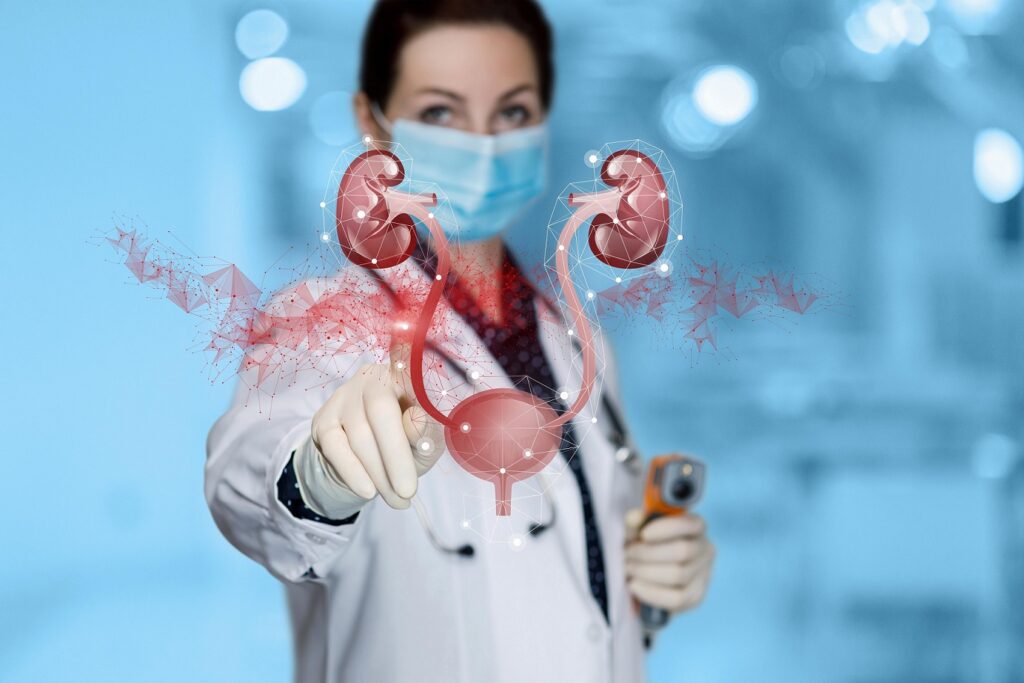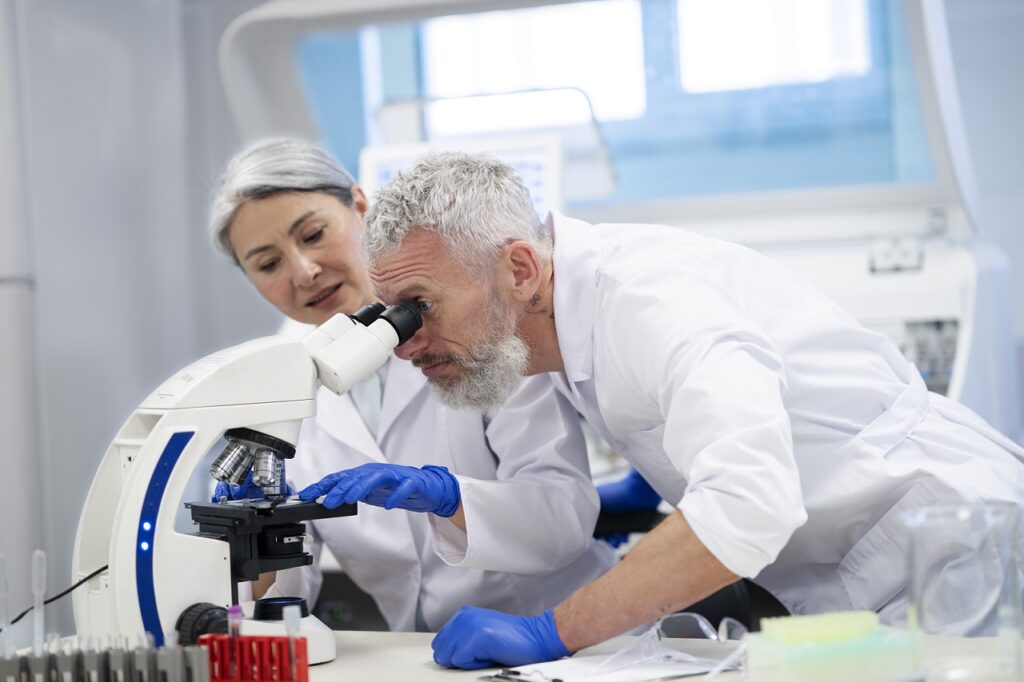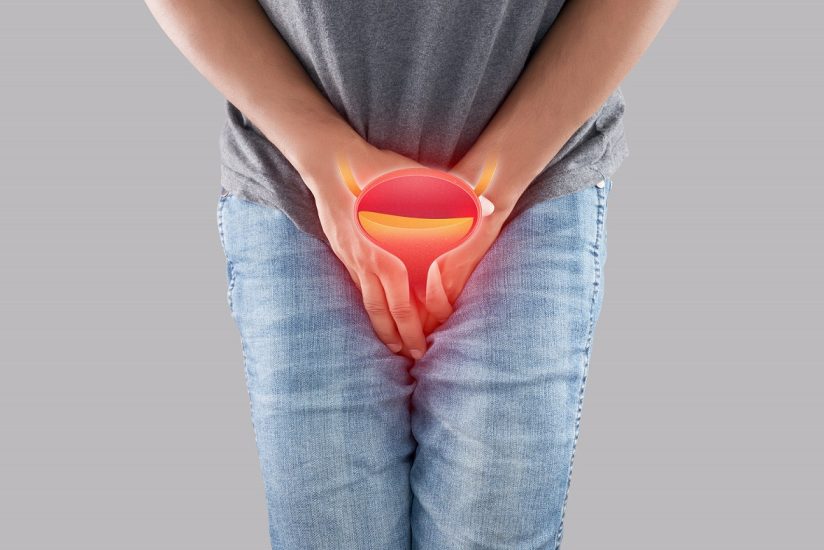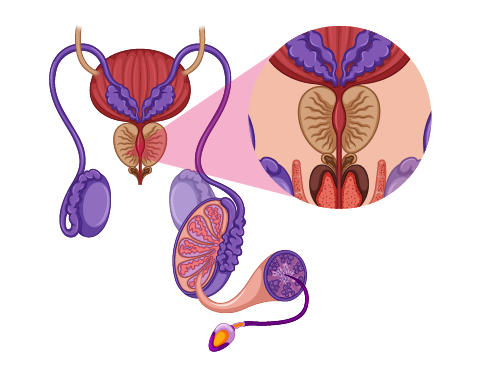H1 Tag: As Title
Introduction: As Meta Description
Form
Precision Oncology & Holistic Approach to Prostate Cancer Treatment at Art of Healing Cancer
At Art of Healing Cancer, the fusion of Precision Oncology, modern medicine, and traditional healing practices forms the cornerstone of our patient-centered treatment philosophy. Recognizing the uniqueness of each individual’s battle with cancer, we integrate cutting-edge genomic sequencing and the latest medical advancements to tailor treatment plans that are as unique as the patients themselves. Simultaneously, we embrace the wisdom of traditional medicine, acknowledging its role in nurturing the whole person – body, mind, and spirit. This holistic approach not only targets the cancer cells but also supports the overall well-being of our patients, helping them to maintain a better quality of life throughout their treatment journey. By blending these diverse modalities, Art of Healing Cancer offers a compassionate, comprehensive care plan that addresses the multifaceted challenges of cancer, ensuring that each patient receives the most effective, personalized therapy.
Prostate cancer Treatment in ____________________________
Please share your contact details for our teams to connect and guide you through your treatment plans
Form
Our Expert Cancer Care Team
At Art of Healing Cancer, we pride ourselves on having a team of highly skilled and compassionate experts in cancer treatment. Our specialists, drawn from diverse fields of oncology, integrate the latest advancements in modern medicine with traditional healing practices. This unique blend ensures that each patient receives a holistic treatment plan, tailored to their specific needs. Our team includes renowned oncologists, experienced surgeons, dedicated nurses, and supportive care professionals who work together to provide comprehensive care. To meet our esteemed team and learn more about their expertise and contributions in the field of cancer treatment, please visit our dedicated page here.
 DR. MANDEEP SINGH MALHOTRA
DR. MANDEEP SINGH MALHOTRA
- Dr. Mandeep Singh Malhotra is the Chief Mentor at Art of Healing Cancer, with over 20 years of clinical oncology experience.
- He trained in surgical oncology at All India Institute of Medical Sciences, Delhi, and gained international experience in the UK, USA, and Singapore.
- Expert in Salvage Surgery for various recurrent cancers and integrates Precision Oncology with traditional medicine.
Accreditation
Why Choose Art of Healing Cancer

Blending traditional and modern treatments, we offer a holistic approach to cancer care.
Through chemosensitivity planning, we customize chemotherapy to each patient’s unique needs.
Precision and improved outcomes are hallmarks of our state-of-the-art robotic surgery techniques.
Utilizing genomic and transcriptomic data analysis, we provide the most advanced targeted therapy options.
As the only institution in India combining genomic and transcriptomic data with natural and herbal treatments, we offer comprehensive care.
We offer the most advanced immunotherapy treatments, including tailored vaccines and sensitivity testing to immunotherapy drugs.
One of the only centres trained on exploiting tumor Metabolism
We can grow cancer cells from blood in 3D tumors to analyse the cancer characteristics
Publications
International journal of Complementary and Internal Medicine
Impact of Slow- Infusion (Metronomic) 2-Deoxy-D-Glucose in Treatment of Refractory Patient of Gliobalstoma Multiforme
Cost of Prostate Cancer Treatment
The cost of prostate cancer treatment can vary widely based on factors like cancer type and stage, treatments required, healthcare facility, and the choice between private or public healthcare services. Here’s a general breakdown of potential costs:
- Diagnostic tests, including PSA blood tests, might cost between INR 500 to INR 2,000.
- Imaging tests like MRI or CT scans can range from INR 5,000 to INR 20,000.
- A prostate biopsy, necessary for confirming the diagnosis, can cost between INR 15,000 to INR 50,000, depending on the technique and the facility.
- The cost for a radical prostatectomy, a common surgical treatment, can vary significantly. Laparoscopic or robotic surgeries tend to be more expensive, potentially ranging from INR 2,00,000 to INR 5,00,000, while open surgeries might be somewhat less.
- A complete course ranges from INR 1,00,000 to INR 2,50,000, based on session type and number.
- Costs per cycle range from INR 20,000 to INR 2,00,000, with total varying by drugs used and cycle number.
- Monthly costs can be INR 50,000 to over INR 1,00,000, depending on medications.
- Often exceeds INR 1,00,000 per dose, potentially spanning several doses.
- Includes side effect management, physical therapy, counseling, alternative therapies, adding significantly to total cost.
- Regular appointments, tests, and monitoring for recurrence are ongoing costs.

Factors Influencing Treatment Costs
Stage of Cancer
Treatment Plan
Personalized Treatment Approaches
Art of Healing Cancer: Pioneering Robotic Prostate Cancer Surgery
Art of Healing Cancer proudly stands among the first in the nation to offer robotic prostate cancer surgery. This advanced technique enhances precision, reduces recovery time, and minimizes scarring, representing a significant leap forward in surgical oncology and patient care.

Prostate Cancer – Introduction & Treatment Methodology
Prostate cancer develops in the prostate gland, crucial for seminal fluid production. It begins with abnormal cell changes leading to uncontrolled growth. The disease’s progression varies, with some tumors growing slowly and others aggressively. Metastasis, or spread to other body parts, complicates treatment. Early detection enhances treatment success.

The most prevalent type, originating in the gland cells of the prostate ducts. Often slow-growing, it may not present symptoms for years.
Starts in the prostate ducts and is more aggressive and faster-spreading than acinar adenocarcinoma, potentially causing early urinary symptoms or blood in urine.
A rare, fast-growing neuroendocrine cancer that doesn’t typically raise PSA levels, making it harder to detect through standard screenings.
Develops from flat cells covering the prostate, known for rapid growth and higher likelihood of spreading, posing greater treatment challenges.
Begins in urethral cells, often extending from the bladder to the prostate, and is treated similarly to bladder cancer.
Testing and Screening for Prostate Cancer
Discussion on symptoms, family history, and risk factors, followed by a digital rectal exam (DRE) to check the prostate for irregularities.
A blood test to measure PSA levels, where high levels may suggest prostate cancer, though they can also be elevated due to other conditions.
Ultrasound, MRI, or CT scans may be used to further examine the prostate and check for cancer spread after initial tests raise concerns.
Removal and microscopic examination of prostate tissue samples to confirm cancer presence and assess its aggressiveness (Gleason score).
Analysis of cancer cell genes to predict cancer behavior and inform treatment strategies.
For suspected advanced cancer, bone scans, PET scans, or other tests may be performed to detect cancer spread to bones or elsewhere.

Causes and Risk Factors of Prostate Cancer

Risk escalates significantly after 50, peaking in men over 65. Younger men are at lower risk.
Men with a familial link, especially with affected close relatives, face higher risks, more so if the cancer was diagnosed at a young age in these relatives.
African American men exhibit a higher incidence and tend to have more advanced and aggressive forms upon diagnosis, influenced by a mix of genetic and socio-economic factors.
Diets rich in red meat and high-fat dairy, alongside low fruit and vegetable intake, may elevate risk, as does obesity, which is linked to more aggressive cancers.
Mutations in BRCA1 and BRCA2 genes increase susceptibility, potentially leading to earlier onset.
Certain exposures, like Agent Orange, may heighten risk, necessitating further research in this area
Symptoms of Prostate Cancer
Notable changes include more frequent urination, particularly at night, difficulty starting or stopping urine flow, weak stream, and discomfort during urination.
Blood in urine or semen can signal prostate cancer or other health issues.
Trouble with erections can be an early prostate cancer sign, though it has many other causes.
Discomfort in the pelvic area or pain in bones may suggest advanced prostate cancer.
Cancer spreading to the spine can lead to leg or foot weakness or numbness.

Stages of Prostate Cancer

Early-stage cancer, small and contained within the prostate, often found by chance. May not require immediate treatment, just active monitoring.
Cancer is larger but still within the prostate, detectable by exams or imaging. Substages IIA and IIB based on tumor size and aggressiveness. Treatment varies from surveillance to surgery or radiation.
Cancer has spread to nearby tissues but not to distant lymph nodes or organs. Treatment often includes radiation and hormone therapy.
Advanced cancer that has spread to distant lymph nodes, bones, or organs. Subdivided into IVA (nearby lymph nodes) and IVB (distant spread). Treatment focuses on managing symptoms and may include hormone therapy, chemotherapy, or other therapies.
Integrative Cancer Treatments at Art of Healing Cancer
Administering high-dose Vitamin C intravenously, this therapy is explored for its potential to produce hydrogen peroxide, which may target cancer cells, enhance life quality, and mitigate side effects of traditional treatments.
An innovative therapy where patients inhale molecular hydrogen gas, leveraging its antioxidant properties to potentially reduce oxidative stress in cancer cells. Its efficacy and safety in humans are subjects of ongoing research.
Involves breathing pure oxygen in a pressurized environment, believed to enhance tissue oxygenation and aid healing. Used cautiously in cancer care to potentially improve chemotherapy and radiation effectiveness and manage side effects.
Utilizes extracts from the European mistletoe plant, injected to possibly stimulate the immune system and exert cytotoxic effects on cancer cells. While popular in Europe for quality of life improvement, its scientific validation remains mixed.
An ancient Indian practice focusing on body system balance through diet, herbal treatment, and yogic breathing. Aimed at detoxification, boosting defense mechanisms, and overall well-being, it complements conventional treatments despite limited clinical trial evidence.

Treatment Options for Prostate Cancer

Radical Prostatectomy: Complete removal of the prostate and some surrounding tissue. Techniques include:
- Open: Traditional, with a lower abdominal incision.
- Laparoscopic: Minimally invasive with small incisions and special instruments.
- Robot-assisted Laparoscopic: Uses a robotic system for enhanced precision.
Nerve-Sparing Surgery: Aims to preserve erectile function by avoiding damage to nearby nerves, not suitable for all cases.
Lymph Node Dissection: Removal of pelvic lymph nodes during prostatectomy to assess cancer spread, extent varies by cancer risk.
Uses cytotoxic drugs to target rapidly dividing cancer cells, administered intravenously, orally, or by injection. Types include Anthracyclines, Taxanes, Alkylating Agents, and Antimetabolites. Can be neoadjuvant (before surgery), adjuvant (after surgery), or palliative.
Focuses on specific genes or proteins involved in cancer growth.
- Monoclonal Antibodies: Bind to cancer cell molecules, blocking growth or aiding immune response.
- Tyrosine Kinase Inhibitors: Block enzymes promoting cancer cell growth.
- Proteasome Inhibitors: Hinder protein breakdown needed for cancer cell survival.
- Histone Deacetylase Inhibitors: Affect gene expression regulation in cancer cells.
Enhances the body’s immune response against cancer.
- Checkpoint Inhibitors: Unblock immune cells to attack cancer.
- Monoclonal Antibodies: Target specific cancer cells.
- Cancer Vaccines: Train the immune system to recognize cancer cells.
- Adoptive Cell Therapy: Modifies patient’s immune cells to better fight cancer.
- Oncolytic Virus Therapy: Uses viruses to target and destroy cancer cells.
Uses high-energy beams to kill or halt cancer cell growth.
- External Beam Radiation Therapy (EBRT): Directs radiation from outside the body.
- Internal Radiation Therapy (Brachytherapy): Places radioactive material near cancer cells.
- Systemic Radiation Therapy: Uses radioactive substances in the blood.
- Proton Therapy: Utilizes protons for precise targeting.
Customizes treatment based on genetic profiling of cancer.
- Genomic Sequencing (NGS): Identifies specific mutations for targeted therapies.
- Chemosensitivity: Tests cancer cell response to chemotherapy drugs.
- RNA Sequencing: Analyzes gene expression for targeted interventions.
- Tissue Banking: Stores samples for future research.
- Circulating Tumor Cell (CTC): Monitors disease progression through blood analysis.
- Metabolic Therapy: Targets cancer cell metabolism through dietary changes.
Complementary approaches focusing on well-being and symptom management.
- Diet and Nutrition: Emphasizes whole foods and anti-inflammatory items.
- Herbal Supplements: Includes evidence-based herbs for cancer care or symptom relief.
- Mind-Body Therapies: Practices like meditation, yoga, and tai chi for stress reduction.
- IV Vitamin C: High-dose therapy with potential benefits but not widely accepted.
- Hydrogen Inhalation Therapy: Emerging approach with antioxidant properties.
- Hyperbaric Oxygen Therapy (HBOT): Enhances chemotherapy and radiation efficacy, with cautious use.
- Mistletoe Therapy: Used for immune stimulation and quality of life improvement.
- Ayurvedic Medicine: Focuses on holistic care, often alongside conventional treatments.
Each treatment option is chosen based on individual patient factors, cancer stage, and overall health, offering a comprehensive approach to prostate cancer management.
